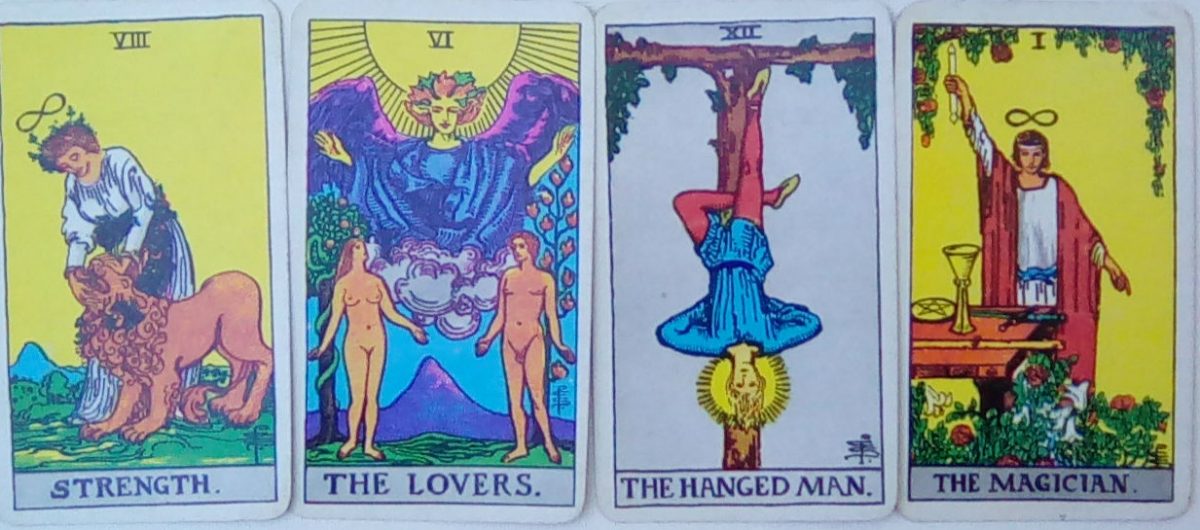
So I just received my Amazing Hooga Earthing Mat from the very nice UPS driver and I should be incredibly spiritual after just a few days of using it.
The basic theory behind them is that our energy systems get in a kerfuffle because we’re exposed to negative people, places, and things and, when we walk barefoot on the Earth, it restores our systems to their natural, harmonious balance. Earthing Mats simulate that very same energy and get our auras all fluffy and pretty again.
I decided to get one because I’ve recently become aware of the fact that it is of tantamount importance for empaths to stay thoroughly grounded. If we don’t, we start to dissolve like a piece of salt in the rain. Earthing is a dandy way to avoid that.
EMPATHS AND EMPATHY
Being an empath is sort of hard to describe to a, “normal,” person. First of all, of course, being an empath is not equivalent to being empathetic, although most empaths are highly empathetic. An empathetic person might sympathize with another individual to a point where they can imagine what the other person is feeling and thinking. Empaths actually experience what the other person is feeling in real time.
Empaths are also not psychics, although most psychics are empaths. A psychic will focus on another person, “read,” their energy, their emotions and their thoughts, and then weave all of that into a coherent meaning, much like telling a story. Empaths, on the other hand, are simply bombarded with information about the other person without really knowing what it all means. We automatically glean far more details about the other person’s energetic and emotional state than what’s on the surface, but we don’t necessarily know how to put it all together.
To make it even more confusing, there isn’t just one type of empath. There are empaths who actually hear what other people are thinking. Other empaths feel other people’s emotions as they occur. Some are telemetric empaths who, “get a reading,” merely by touching a piece of clothing or jewelry that someone else has owned. A few empaths are highly attuned to the feelings of animals, but won’t pick up anything from other human beings. Precognitive empaths may get very strong insights about what’s going to happen to a person in the future.
EMPATHS AND EGO STRUCTURE
One thing that all empaths have in common is a relatively weak ego structure. It makes perfect sense, when we think about it. Our ego is our sense of who we are, and the first part of knowing who we are is knowing that you’re over there and I’m over here. Your, “you,” starts with your skin and all of your emotions, energy, and thoughts reside inside of your skin and all of mine reside in mine. The only way that another human could possibly know what we’re thinking is if we tell them.
Which is very much not true for empaths. For an empath, what’s going on in the other person’s mind is also going on in our minds, simultaneously with what WE’RE thinking.
All of which can make for a very confusing state of affairs, because we’re never quite sure which part of the conversation is ours and which part is yours. For an un-grounded empath, there really ARE no significant boundaries or borders.
There’s an old Spanish expression which goes, “Mi casa, su casa,” or, “My house is your house.” Now change that to, “My brain is your brain,” and you get an idea of how truly weird it can be for an empath to hold a simple conversation. Most empaths have to sit quietly after a meaningful exchange and decode exactly what thoughts came from which person.
EMPATHS AND CODEPENDENCY
One of the ways that the weak ego structure of empaths shows up is in codependent behavior. Codependents tend to revolve around other people, much like the moon revolves around the earth. Sometimes that’s a result of having been raised in an alcoholic or abusive family. Sometimes it’s because we have a particular personality type. And sometimes it’s because we’re empaths who haven’t learned to separate ourselves from other people.
What happens with empaths is that we become enmeshed in the other person’s energy, in their thoughts, emotions, and their life patterns. Since empaths already have a weakened sense of boundaries, they can easily dissolve into a more dominant person’s energy system. In essence, they become overwhelmed and end up as bit players in someone else’s movie, instead of starring in their own. They not only feel the other person’s emotions, they become the other person’s emotions.
EMPATHS AND MEDITATION
Empaths also need to be very careful about the type of meditation they practice.
Many types of meditation are geared toward weakening the ego structure. We’re basically trying to get past that chattering mind stream that prevents us from truly relaxing into deep meditation. Those techniques involve what’s referred to as a, “bare awareness,” method, where we might focus on our breath or a mantra, or a candle flame, until the chattering mind calms down and recedes into the background.
BUT . . . studies have increasingly shown that meditation is highly correlated with PSI or psychic abilities. If we tritty trot off to a meditation center for a two week retreat, we’re probably going to be more psychic coming out of it than we were going in. For a normal person, that involves a significant decrease in ego control and, “becoming one,” with the universe and our fellow humans.
An empath, though, is already wide open and our challenge lies in shutting down some of that in-flow of information. Deep meditation can destroy whatever barriers we’ve managed to erect and leave us completely adrift in other people’s energies.
Mindfulness meditation seems to be the, “go to,” method for empaths. It’s a constant reminder to stay in our own bodies in the present moment and to separate from all of the drama out there.
THE EIGHT OF WANDS

Being an empath can feel very much like the Eight of Wands looks. Wands represent ideas and this card shows inspired ideas raining down from heaven. For an empath, though, the ideas may be far from inspired and not at all our own.
If everyone we met was in a perfect, loving place, being an empath could be pure heaven. We’d just walk around grinning while all of those good vibes poured straight into us. Unfortunately, that’s far from the current state of affairs and a tremendous amount of what we absorb is toxic.
The answers for empaths seem to be strengthening ego structure, not weakening it. Building boundaries and borders, not letting them down. And, above all, staying grounded. Which we can begin to do by planting our tootsies firmly on the Amazing Hooga Earthing Mat.


